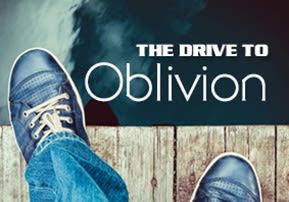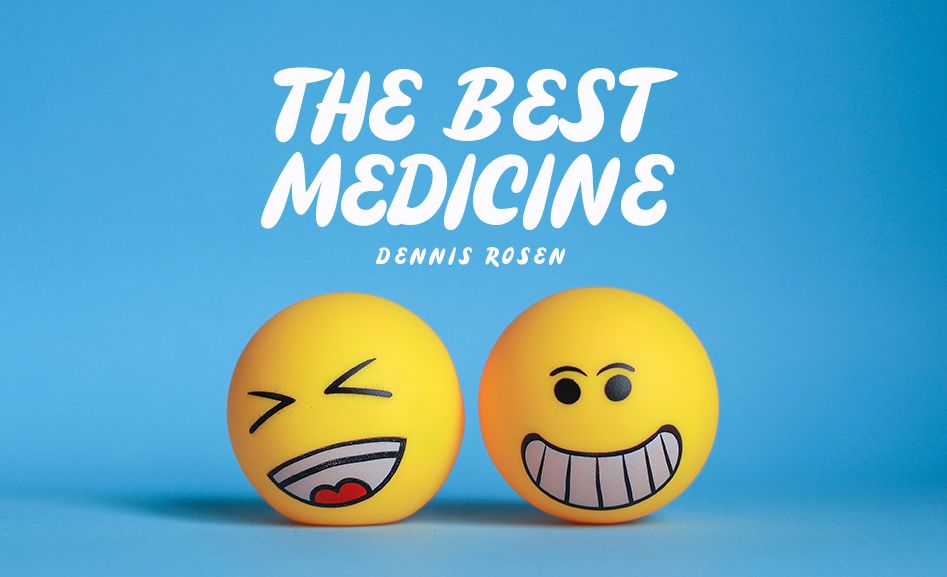
The Drive to Oblivion
The resistance to submitting to G-d leaves people vulnerable to many situations in life that they are not capable of adequately coping with on their own...

There is a drive for self-relinquishment that is built into human beings; it’s an instinct to want to lose oneself and become one and whole with something greater. Everybody has this deep inborn urge to go beyond the confines and limitations of the individual, isolated, self-doubting, and conflict-ridden self and to connect with their faith in something perfect. For millennia the individual’s submission to his Creator and the Creator’s way of life provided Jewish people with a sense of hope, adequacy, and confidence even during the most perilous of times.
When the need to connect to our Creator is discouraged by the surrounding culture, as it is in our times, the inborn drive doesn’t disappear; it becomes frustrated and must seek gratification through unhealthy, dark, and pathological outlets. I have discussed my viewpoints elsewhere about the reasons for our culture’s resistance to G-d, however there is one basic reason for it, it’s a fear of being ostracized and alienated from one’s family and one’s surrounding environment.
The resistance to submitting to G-d, and therefore transcending the limitations of the individual isolated  and intrinsically weak and worried self, leaves people vulnerable to facts of life that they are not capable of adequately coping with on their own. These facts include: old age, sickness, and death among many others. In today’s culture, the individual is expected to stand on his own feet, assert himself, and if necessary fight his way. The price that humanity has paid for people having to stand on their own feet and relying on the power of their own reason can be seen in the horrifying array of human problems that exist in today’s world.
and intrinsically weak and worried self, leaves people vulnerable to facts of life that they are not capable of adequately coping with on their own. These facts include: old age, sickness, and death among many others. In today’s culture, the individual is expected to stand on his own feet, assert himself, and if necessary fight his way. The price that humanity has paid for people having to stand on their own feet and relying on the power of their own reason can be seen in the horrifying array of human problems that exist in today’s world.
First let us consider the cost to the individual, and then to society at large. As I mentioned earlier, without a healthy transcendence of self though a oneness with G-d, the individual is inevitably lulled into other means of “transcendence” that are not at all healthy for him. There is scarcely any type of neurosis in which the drive to transcend the self does not appear in some direct form. It may appear in fantasies of leaving home and becoming a wanderer or of actually losing one’s identity to a cult or diabolical leader. It occurs in those who lose themselves to lust, alcohol, death-defying acts or pseudo-heroic forms of “self-sacrifice.”
In extreme cases the individual escapes from the shackles of his pain by submitting to the “G-d” of terror and mass murder. This choice becomes especially alluring to desperate individuals who find sanction and even cultural encouragement for this type of masochistic surrender. It should be noted that in these cases, devotion to the cause is hardly their true aim. The difference between genuine self-sacrifice and the “self-sacrifice” of the suicide bomber is that the latter is actually incapable of giving himself to his cause or to his people. As in all forms of masochistic surrender, the terrorist seeks to lose himself only for the sake of losing himself; there is no active inter-play between him and others. Just as he is incapable of giving himself in love, he is incapable of giving himself to his cause. The motive of a terrorist is only his self-centered absorption in his own ends which in his case, is a wish to end the misery of his own life. The terrorist is a gutless and passive individual who has found societal approval for his cowardly retreat from life. Pathological forms of surrender are always a manifestation of weakness; only genuine forms of surrender are a manifestation of inner-strength.
The drive to transcend oneself has its root in holiness and purity. When it is derailed because G-d is no longer an option, the person is thrust into self-doubt and conflict. He searches for a solution to his conflict but the “solution” is always a neurotic one at best. Without G-d in his life, he is somewhere on a neurotic continuum ranging from mild neurosis to severe psychosis.
The average neurotic of our time finds a “solution” to his pain in surrendering to hopelessness and helplessness. By giving in to hopelessness, these individuals hope to remove themselves from their conflicts and worries about success and failure, their worries about superiority or inferiority, their worries about their failures in love relationships, their worries about having been “defeated” in various forms of competition, or in their having to face a definite weakness or short-coming in themselves. By “losing” themselves to helplessness, unworthiness, and feelings of intrinsic weakness this type of neurotic trades his sharper more pressing pain for another type of pain that gives him “relief.” Once he is powerless and helpless to do anything no one including himself can blame him for his failure to cope with life.
In other cases, the neurotic escapes into the irrational belief that he is like a reed that can be swayed by any wind; to a feeling that he is in the power of others and is at their beck and call. For others, the pathological surrender comes in the form of passively waiting for G-d to send them a miracle without their lifting a finger. When the pathological relinquishment of self becomes more severe the person may feel that he cannot breath, work, or enjoy anything in life without others supplying them with the incentive, the means and goals that they “should” be striving for.
Today there is no shortage of methods by which one can escape from oneself: drugs, alcohol, lust, television, internet, food. Over-indulgence in novels, movies, politics – even religion can be used as a way of checking out from oneself and one’s challenges to grow and contribute.
There are those who imaginatively seize onto every possibility of believing that they have an organic illness. For them, the natural desire to connect with the Creator gets dislocated, twists and finds “satisfaction” in a deification of doctors. These poor souls are compelled to transcend themselves by committing themselves to the “cause” of endless doctor visits, tests and medical procedures. Ultimately their fears of illness and death dominate their lives. The unconscious “upside” for these types are that now they don’t have the time and strength to be honest with themselves and are therefore absolved from entering into a process of growth that would lead to self-betterment. One person whenever any difficult situation arose quite consciously wished to have a serious illness requiring hospitalization. He fantasized lying in the hospital and being completely taken care of. He imagined the attention and affection that friends and family would give him when they visited him bearing flowers and other gifts. This fantasy gave him temporary “comfort” whenever he felt that he could not deal with the problem at hand.
Someone else found “relief” from the misery of his vicious cycle of drug addiction and criminal acts. His “solution” was to stay in prison for the majority of his life. In his case the wish to connect to an all-powerful and benevolent G-d was perverted and found expression in a belief that the penitentiary will provide for him. Despite the dangers of prison life, it is there that he feels most safe and taken care of. It is there that he wishes to stay. On the rare occasion that he is released from prison it takes him no more than 30 days to get re-arrested and re-incarcerated. He consciously admits that he has exchanged the pain of the “outside” world for the lesser pain of penitentiary life where he does not have to deal with his inner conflicts about pursuing a legitimate career, marrying, raising children and the many other responsibilities that most people have.
The human being’s innate drive to transcend himself and know G-d is the most central and powerful force within him. It is a psychological fact that when this force is perverted, even the most docile and passive of men are capable of barbaric acts of murder and genocide. Moreover when men lose their humanity and become something less than animals; and when the world turns its back and even encourages them to use their outlets of choice, we will see mankind’s drive for healthy transcendence deteriorate into a drive to oblivion and the worst nightmare that we can imagine. G-d forbid.







Tell us what you think!
Thank you for your comment!
It will be published after approval by the Editor.